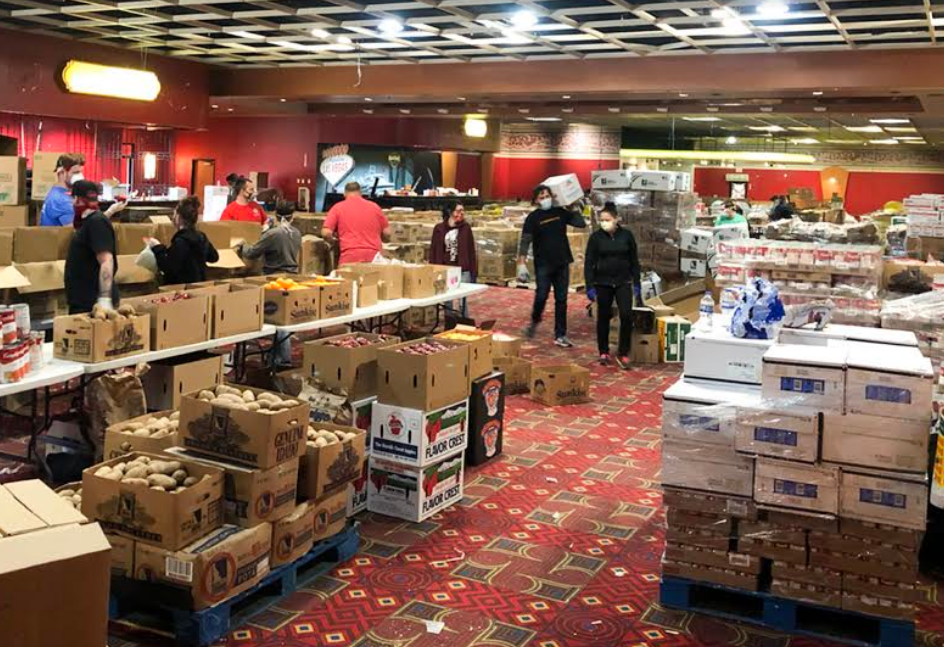
- Details
- By Native News Online Staff
TAHLEQUAH, Okla. — The Cherokee Nation has received $411 million from the federal government for Coronavirus Relief assistance so far. Cherokee Nation Treasurer Tralynna Sherrill Scott on Thursday released the tribe’s COVID-19 Respond, Recover, Rebuild Spending Report showing the number of ways the tribal nation has served its citizens through job and food security, economic relief, health care, housing and connectivity during the pandemic.
Other federal COVID-19 funding received was spent as prescribed by each funding agency, such as USDA food program, health or transportation needs.
The report says the funds provided to the Cherokee Nation enabled it to serve more than 130,000 tribal citizens with direct assistance using the Coronavirus Relief Fund and thousands more of citizens received essential services through other programs provided by the tribal nation.
“The Cherokee Nation Finance Office has worked closely with administration and the Council of the Cherokee Nation to ensure that our relief dollars helped our Cherokee citizens stay safe, stay working and had the basic essential needs such as food, shelter, health care, and clothing to get through this pandemic,” Scott said. “
Of the federal funds received, the Cherokee Nation provided relief by dedicating $177 million for jobs so that employees did not miss a paycheck or experience layoffs in the past year. Another $54 million went directly to individual citizens for emergency relief, clothing assistance, those with disabilities, utilities and other needs.
An additional $38 million was used to purchase in PPE and safety supplies, including setting up its own N95 and N99 mask production, which is still being developed. Once operational, the Cherokee Nation will be the only manufacturer of N99 masks in the United States. An additional $22 million was invested in public health infrastructure needs such as new employee health clinics, expanded domestic violence shelters, and community water line and water treatment improvements.
“We went where the needs were and the needs were all over, and different for different communities,” Principal Chief Chuck Hoskin Jr. said. “There was an ongoing need for PPE manufacturing, so we are having Cherokees produce them in the Cherokee Nation. Other facilities will be used for food security efforts. As we continue the largest emergency food distribution program in the history of the Cherokee Nation we need strategic locations to store and distribute food. Other locations are a way to spread staff and the citizens they serve out through social distancing.”
Another important way the Cherokee Nation is helping communities and addressing needs through the COVID-19 pandemic is by addressing the digital divide throughout the reservation.
The Cherokee Nation sent over $19 million in Technology Grants to students to help them purchase necessary equipment for distance learning. The Nation spent an additional $27 million toward improving connectivity, including providing more than 9,000 mobile Wi-Fi hotspots that included a year of service to Cherokee Nation citizens with no internet connectivity, as well as making investments to improve telework and telehealth capabilities.
The Cherokee Nation also launched the largest emergency food distribution effort in the tribe’s history which served more than 112,000 tribal citizens with boxes of foods during more than 300 food events held in the Cherokee Nation. More than 70,000 ready-made meals were also delivered to Cherokee elders.
The tribe spent $27 million to address food security through the pandemic, including the construction of five new food distribution centers, a meat processing facility, and additional refrigerated trucks. The tribe made other investments in public health, career services, community organizations, housing and economic relief.
Tribal officials said a Respond, Recover and Rebuild website to house the spending report for Cherokee citizens will be available online next week.
More Stories Like This
Native News Weekly (August 25, 2024): D.C. BriefsUS Presidents in Their Own Words Concerning American Indians
Haaland Meets with Southern New Mexico Law Enforcement on Public Safety Priorities
This Day in History – Dec. 26, 1862: 38 Dakota Men Executed by Order of Abraham Lincoln
Merry Christmas 2025
Help us defend tribal sovereignty.
At Native News Online, our mission is rooted in telling the stories that strengthen sovereignty and uplift Indigenous voices — not just at year’s end, but every single day.
Because of your generosity last year, we were able to keep our reporters on the ground in tribal communities, at national gatherings and in the halls of Congress — covering the issues that matter most to Indian Country: sovereignty, culture, education, health and economic opportunity.
That support sustained us through a tough year in 2025. Now, as we look to the year ahead, we need your help right now to ensure warrior journalism remains strong — reporting that defends tribal sovereignty, amplifies Native truth, and holds power accountable.
 The stakes couldn't be higher. Your support keeps Native voices heard, Native stories told and Native sovereignty defended.
The stakes couldn't be higher. Your support keeps Native voices heard, Native stories told and Native sovereignty defended.
Stand with Warrior Journalism today.
Levi Rickert (Potawatomi), Editor & Publisher

